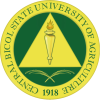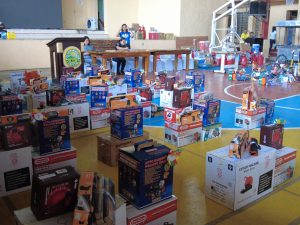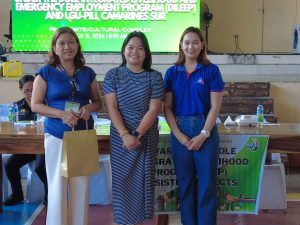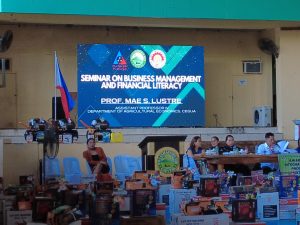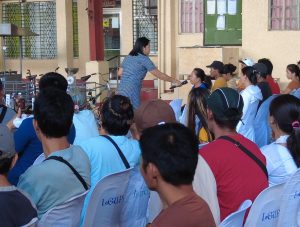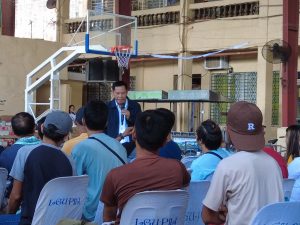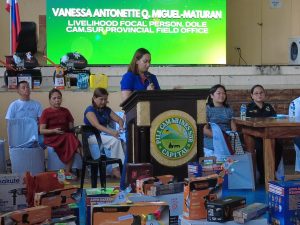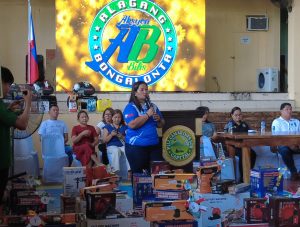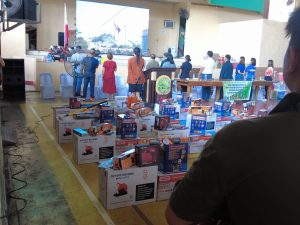In a concerted effort to reduce poverty and foster sustainable livelihoods, the Local Government Unit (LGU) of Pili, in partnership with the Department of Labor and Employment (DOLE) through its DOLE Integrated Livelihood and Emergency Employment Program (DILEEP), awarded livelihood starter kits to selected beneficiaries across various barangays on May 15, 2024, at the Pili Sports and Cultural Complex. This initiative directly provides financial assistance and start-up support to local community members, enabling them to establish financially and socially sustainable businesses.
The ceremony was attended by key officials, including Mrs. Caterina S. Munez, Acting PESO Manager of LGU-Pili; Hon. Francis B. Belen, Municipal Vice Mayor; Mrs. Vanessa Antonette Q. Miguel-Maturan, DOLE Camarines Sur Provincial Field Office livelihood focal person; and Hon. Tomas P. Bongalonta, Jr., Municipal Mayor of Pili. Their messages emphasized the vision of empowering communities through livelihood opportunities and entrepreneurship.
Beneficiaries expressed gratitude, highlighting how the starter kits—covering trades such as food and fish vending, auto/motor repair, electrical repair, masonry, carpentry, welding, and tailoring—provide them with the means to generate income and uplift their families. By equipping households with tools and resources for small-scale enterprises, the program strengthens their capacity to achieve financial independence and contribute to community development.
To ensure sustainability, a business management and financial literacy seminar was conducted by Prof. Mae S.A. Lustre from the Department of Agricultural Economics at CBSUA. The seminar provided practical strategies on financial management, entrepreneurship, and overcoming market challenges, ensuring that beneficiaries can maximize the assistance received and sustain their businesses long-term.
The DOLE representative further emphasized that beneficiaries will be assessed after a year to monitor the effective use of the starter kits and measure improvements in their living conditions.
This initiative exemplifies local start-up financial assistance under SDG 1: No Poverty, as it empowers vulnerable households to establish viable businesses, improve their income, and secure access to basic needs and services. It also contributes to SDG 8: Decent Work and Economic Growth by promoting entrepreneurship and inclusive economic participation.| 𝘙𝘦𝘱𝘰𝘳𝘵 𝘢𝘯𝘥 𝘱𝘩𝘰𝘵𝘰𝘴 𝘧𝘳𝘰𝘮 𝘔𝘴. 𝘐𝘷𝘺 𝘓𝘢𝘯𝘥𝘢𝘨𝘢𝘯, 𝘌𝘚𝘋 𝘚𝘵𝘢𝘧𝘧

